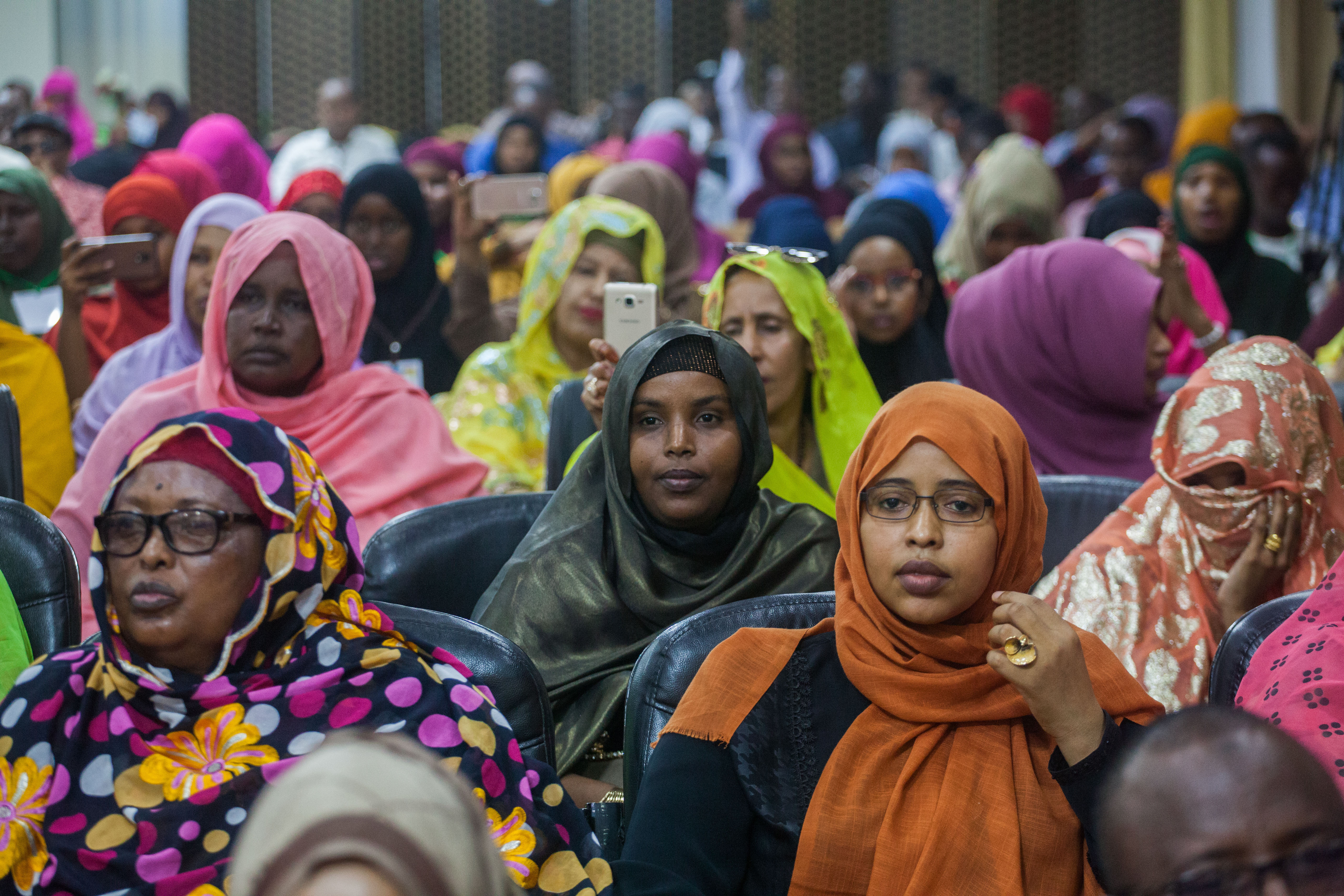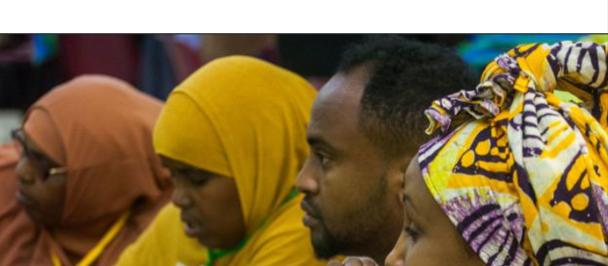9 March 2019
By George Conway, UNDP Resident Representative for Somalia, a.i.
Following this International Women’s Day 2019, and in the run up to the 63rd session of the Commission on the Status of Women at the UN headquarters in New York, UNDP Somalia is joining the global call to “Think Equal, Build Smart and Innovate for Change,” to achieve gender equality and women’s rights. In this, we are joining Somali women and men who are working for gender equality and women’s empowerment as an integral part of Somalia's peace and development agenda.
Somali women continue to demand their place in decision making at all levels of governance, to ensure that the issues important to them are reflected in all legislation, plans and budgets. They are demanding fairness for themselves and for those most left behind in their families, communities, and in local and national governance.
Somalia is at a very important cross-road as it is currently undergoing a review of its Provisional Constitution. This review process is a huge opportunity to ensure that equality and fairness are enshrined in the finalised Constitution of Somalia. This legal foundation would provide the solid ground to mainstream equality across all aspects of life, for all Somalis. Through the Joint Constitutional Review Support Project, UNDP and UNSOM provide support to the different entities involved in the review process, and we remain committed to supporting the Somali people and the Government of Somalia in their efforts to institutionalize equality and equity in this vital document.
This past week Somalia also took another step forward when over 300 delegates at a three-day Somali Women’s Convention issued a Women’s Charter for Somalia. This landmark Charter calls for a fifty percent quota for women, at all levels of governance, to address the historical and structural inequalities that have excluded women and have engrained inequality in families and communities. The Charter also demands the passing of the Sexual Offence Bill, as women and girls will only be able to fully engage if free from violence.
Although institutional improvements are being made across the board, Somalia continues to experience the aftermath of both conflict and climate disasters. Over 2 million people are now displaced in Somalia, due to ongoing crises, with the majority of those displaced living in urban areas. A large percentage of people who are living in displaced communities are women and children.
UNDP supports the government and displaced communities to develop innovative interventions that build resilience that address the root causes of crises. Our Climate Change and Resilience project, together with other UN partners and the Global Environment Facility, has supported the Government with medium and large-scale water infrastructure, reforestation planning, and flood-control infrastructure, which will help improve ecosystem resilience of critical watersheds, rangelands and forested areas. Such investments benefit whole communities, but importantly benefit women, and women-headed households. Through these interventions over 8,400 female headed households now have improved access to water and livelihoods. Through UNDP training and outreach projects in partnership with GEF, and the Government, over 19,000 women now also have increased awareness and knowledge of climate risks and adaptation responses.
Women have benefited and continue to benefit from new, innovative and durable solutions. However, there is a need to engage more women in the design phase of a new generation of interventions that will achieve the Sustainable Development Goals (SDGs). Gender equality and innovation are central to UNDP’s corporate mandate, but are also an integral part of Somalia’s National Development Plan which in turn is aligned to the SDGs.
In line with this, a UNDP accelerator lab is being set up in Somalia, as part of a UNDP global innovation initiative that aims to accelerate development impact. An IDP-led social businesses course is also being run in partnership with Benadir Regional Administration and the EU, which has over fifty percent young women attending, and where the best ideas from the course will go into an UNDP incubator programme to help bring the ideas to market. These initiatives aim to develop innovative interventions that address security, employment, social development and political participation needs in Somalia for women and men.
In addition to our engagements at institutional level, we are teaming up with other agencies to address underlying causes of inequality, by helping communities living in distress to address power imbalances, through principles of non-violent communication, as an innovative way of developing inclusive leadership. We are now beginning to see a shift towards the creation of spaces where both men and women can agree on development priorities for their specific communities. Such a shift can help build resilience against radicalization, as it creates a space for all members of a community to address issues that affect them.
This International Women’s Day, and in International Women's Month, UNDP re-affirms its support and partnership with the Government of Somalia, its civil society, and its youth, to think equal, build smart, and innovate for change to make equality a reality for all Somalis.

 Locations
Locations

